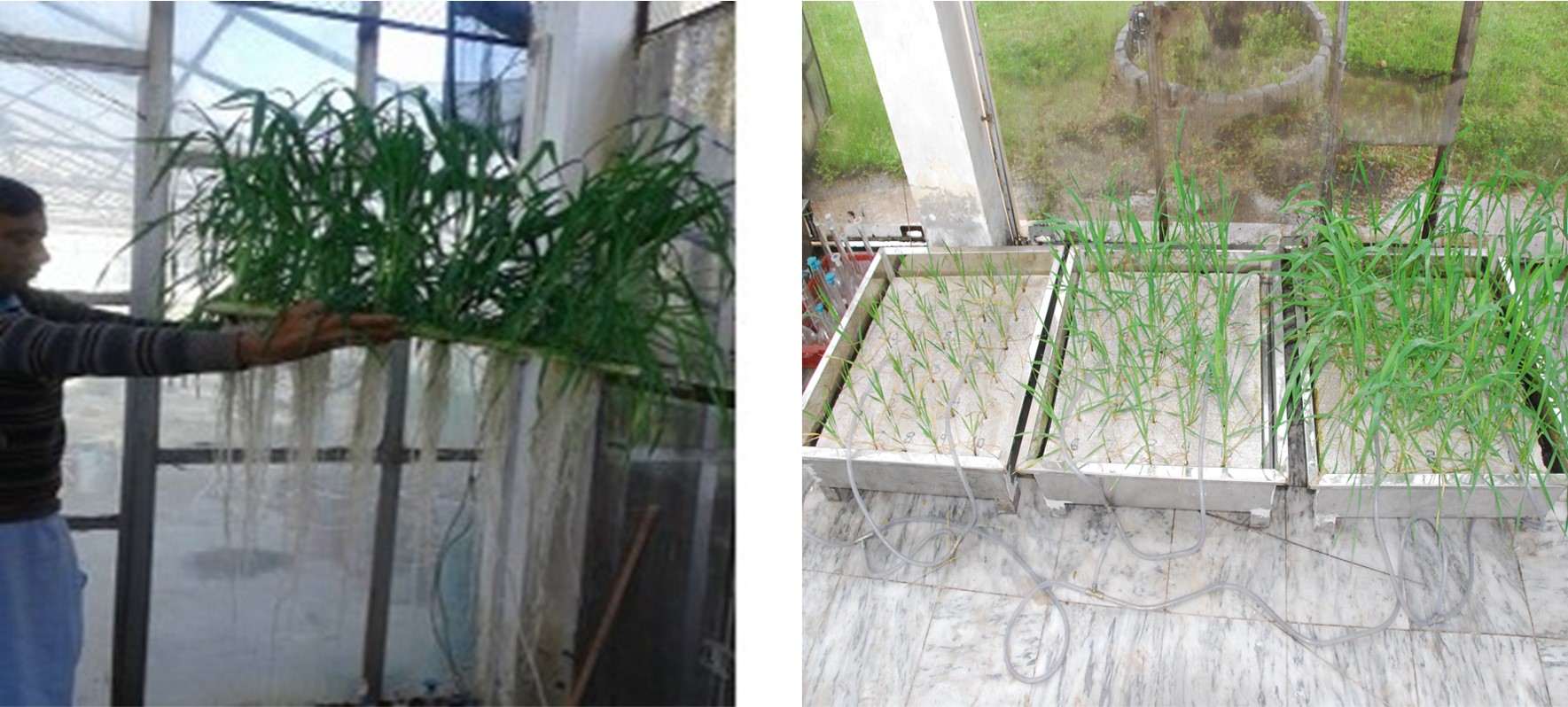
Zinc Biofortification in Wheat
Zinc (Zn) biofortification studies on wheat genotypes through hydroponics have provided base line data for development of Zn-efficient varieties. It is a cost-effective means of delivering micronutrients to populations that may have limited access to diverse diets and other micronutrient interventions. It is highly durable system as the biofortified crop varieties may be grown and consumed year after year. It is the feasible means of reaching undernourished populations in relatively remote rural areas. Using this approach, forty (40) Zn-efficient wheat genotypes have been identified which can be successfully grown on Zn-deficient soils with 10-20% higher yield.

